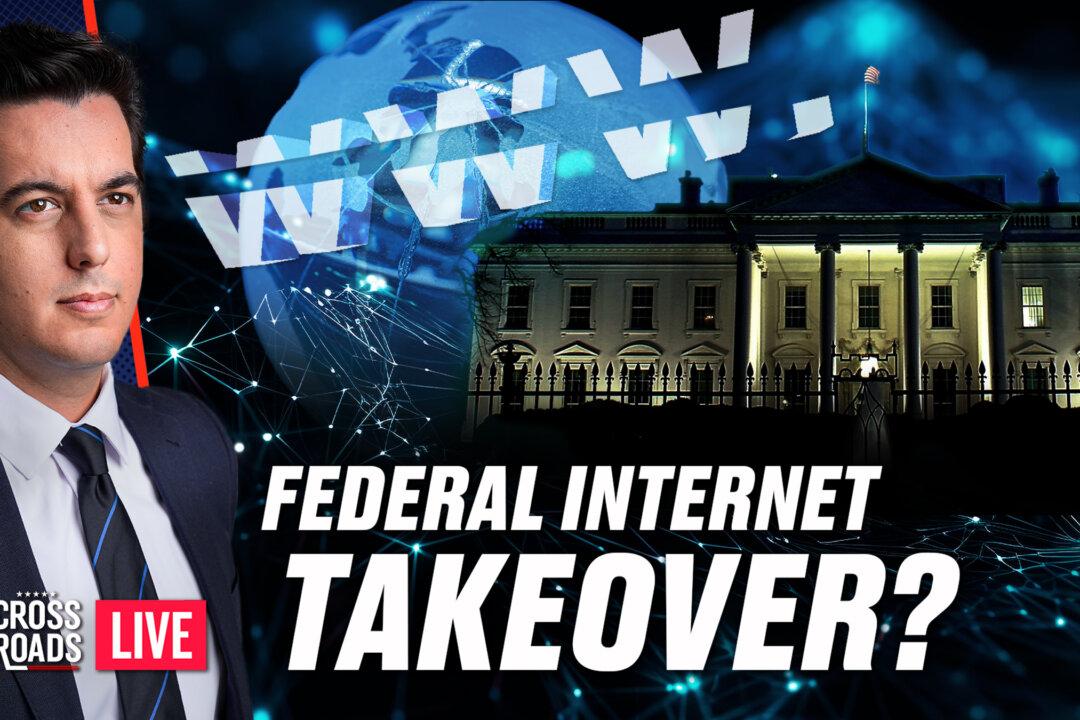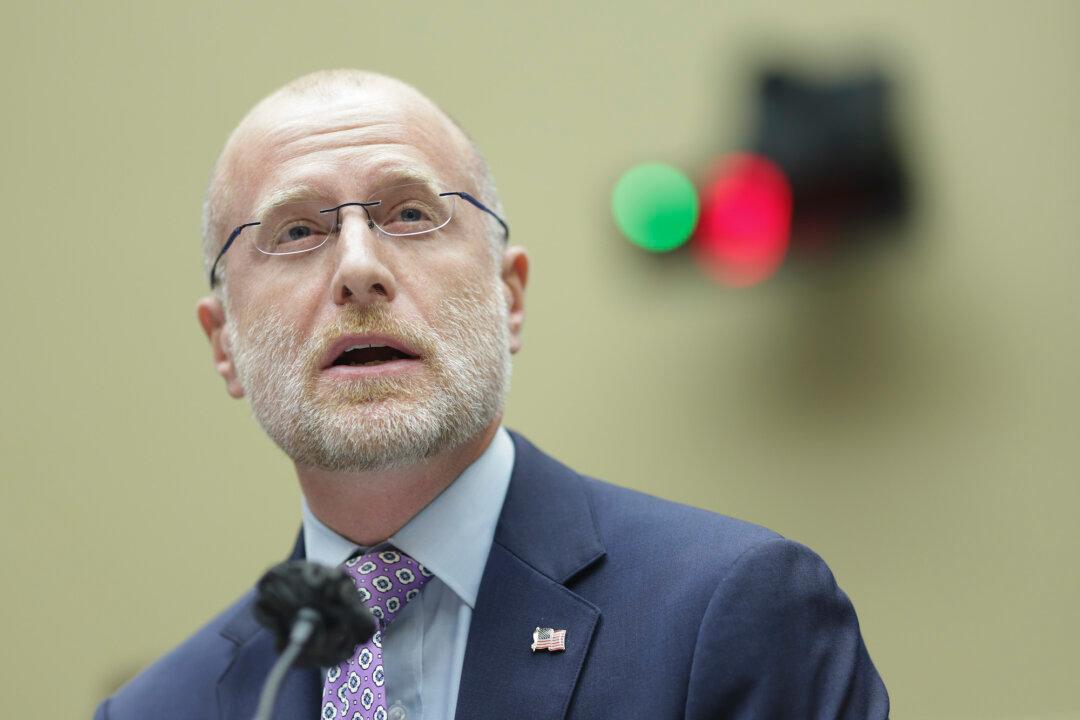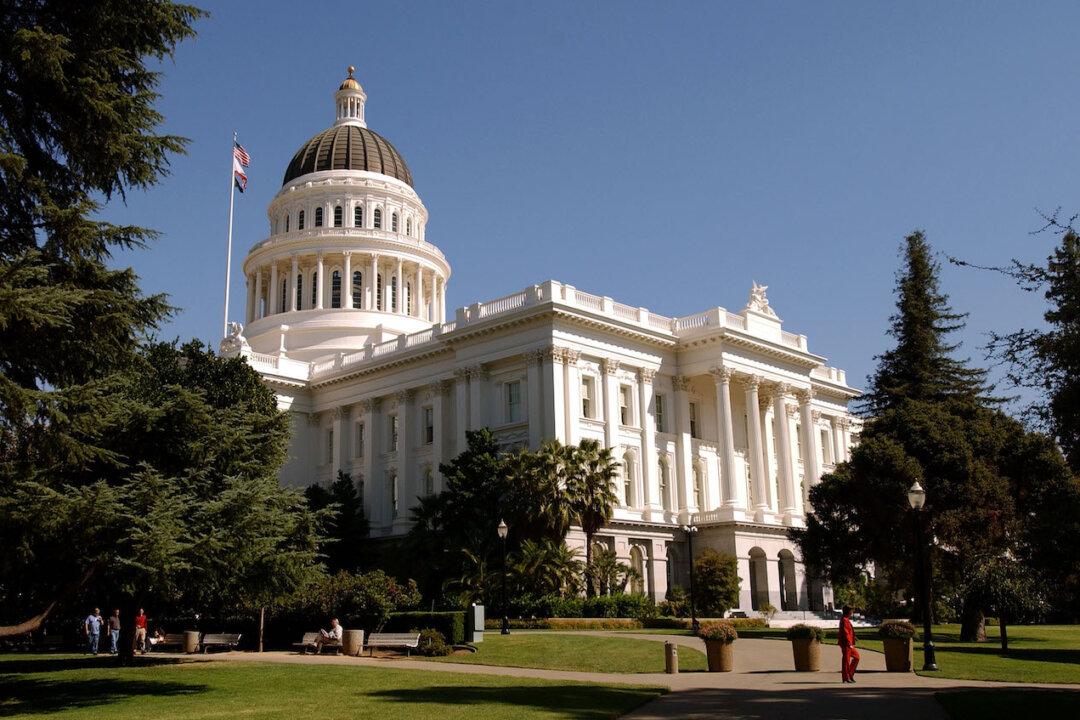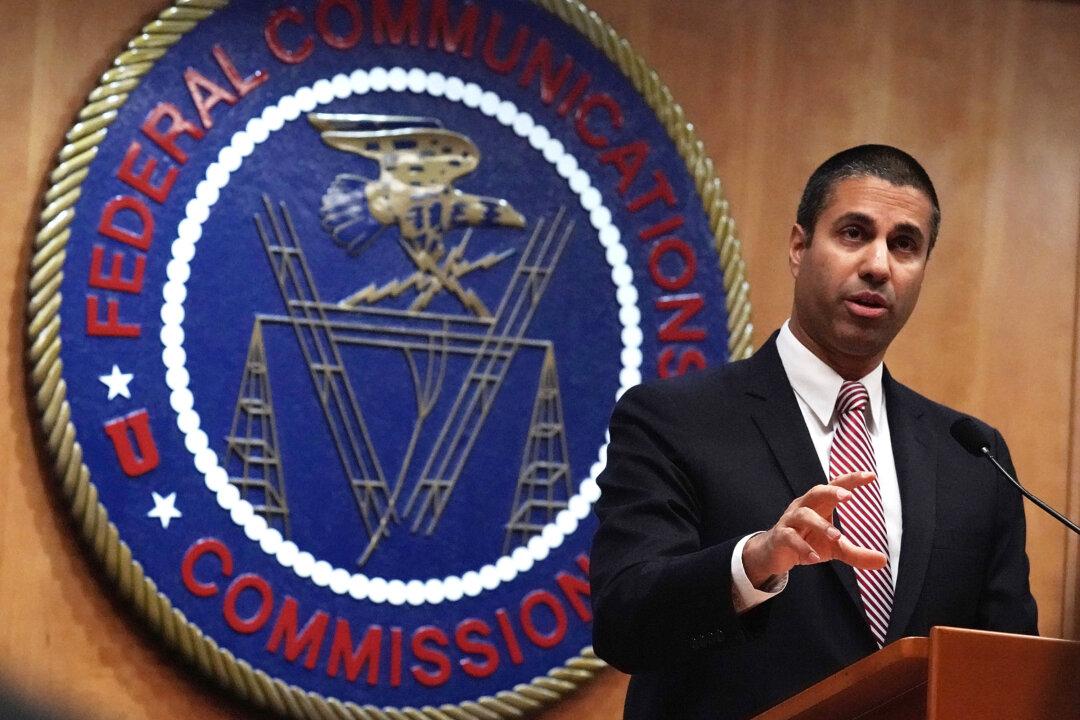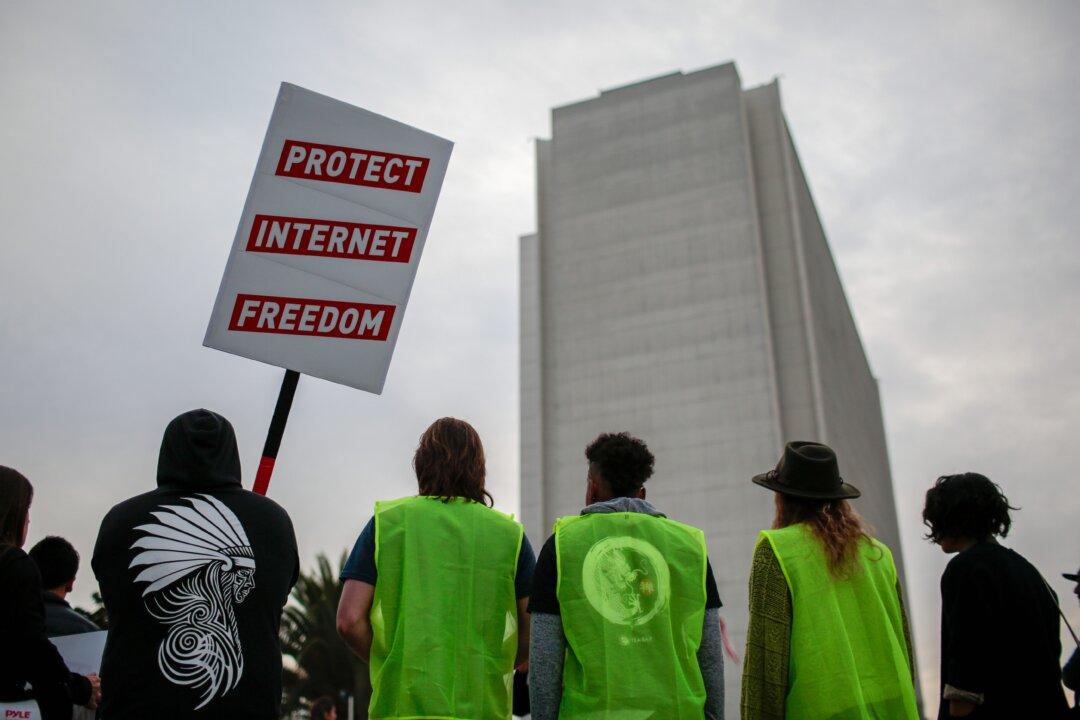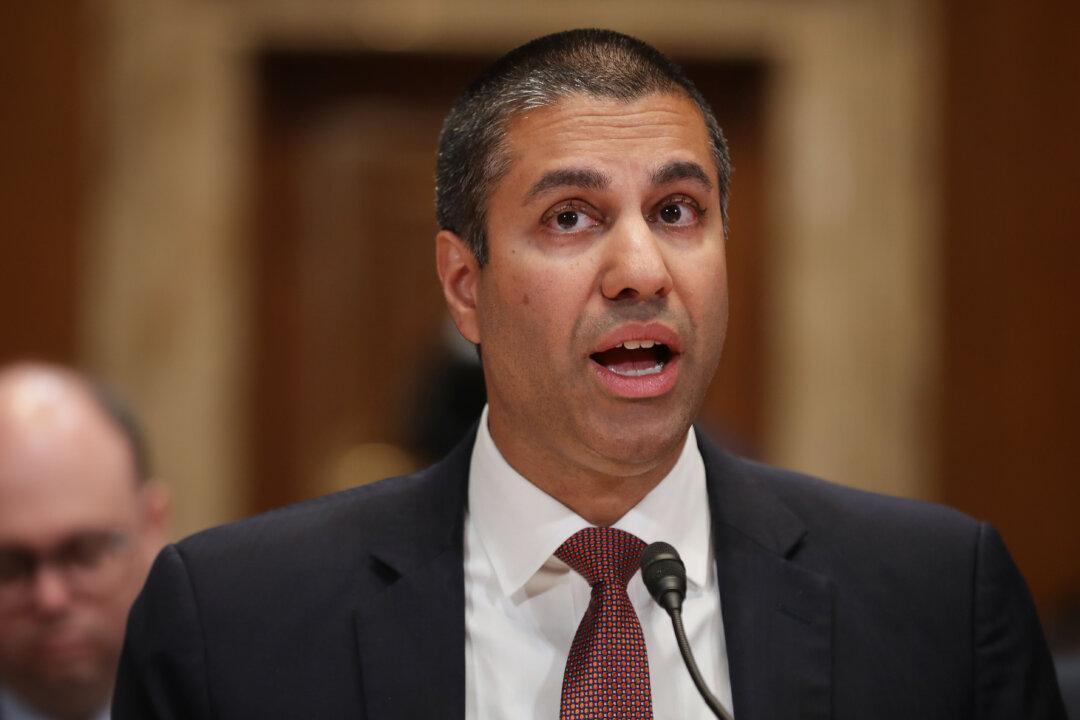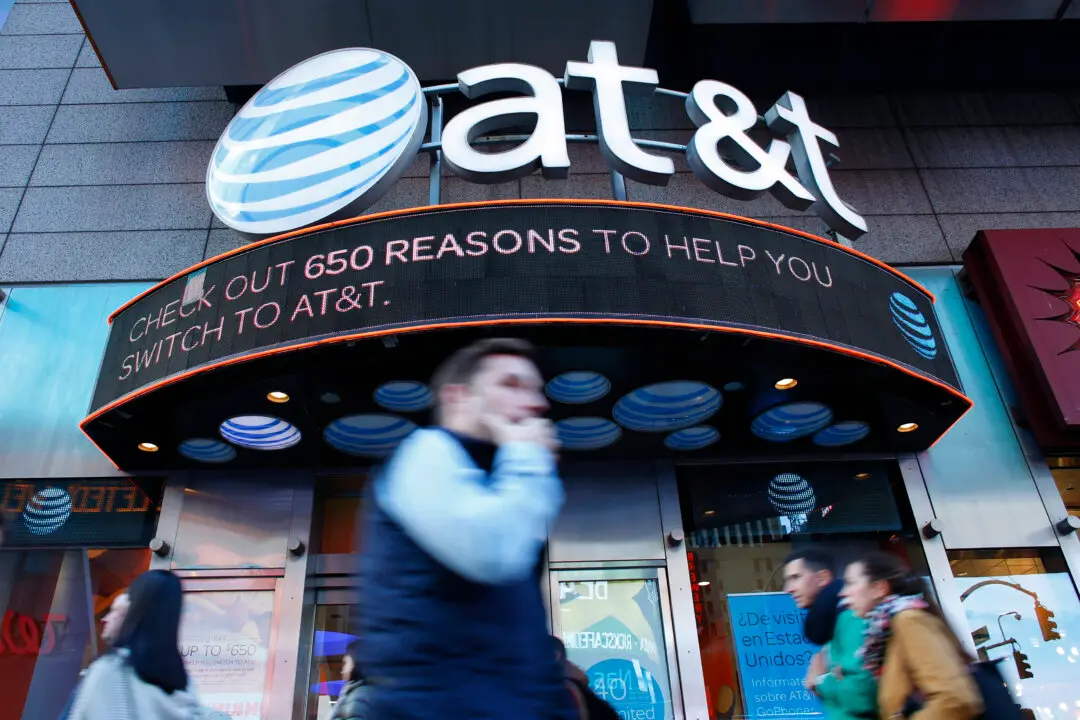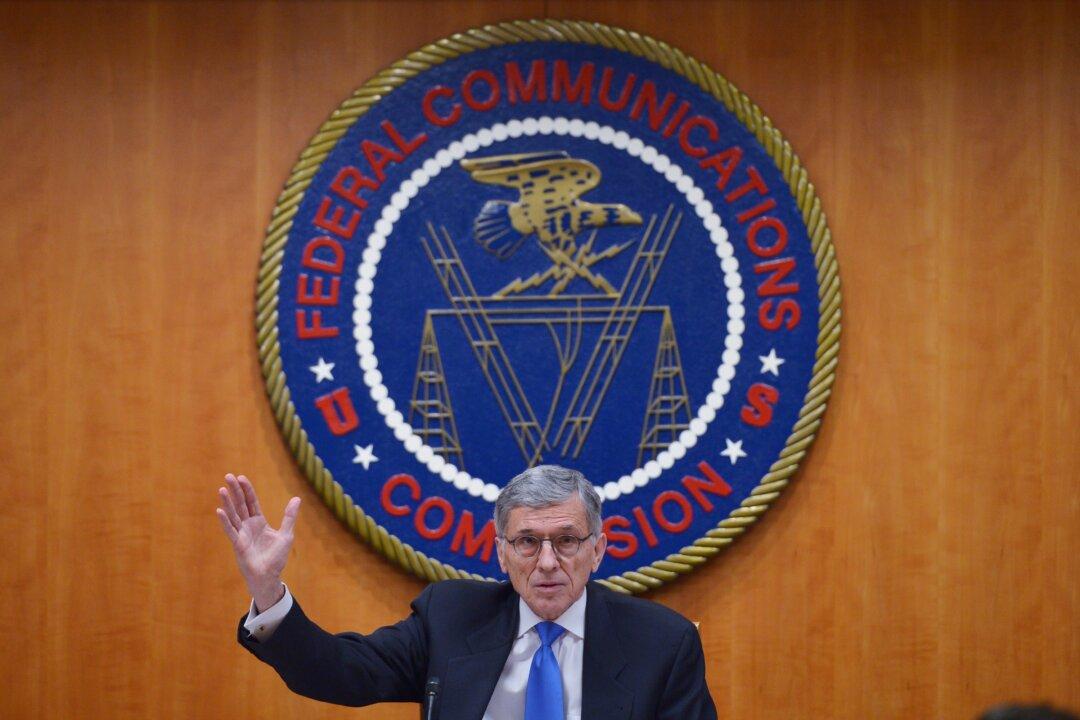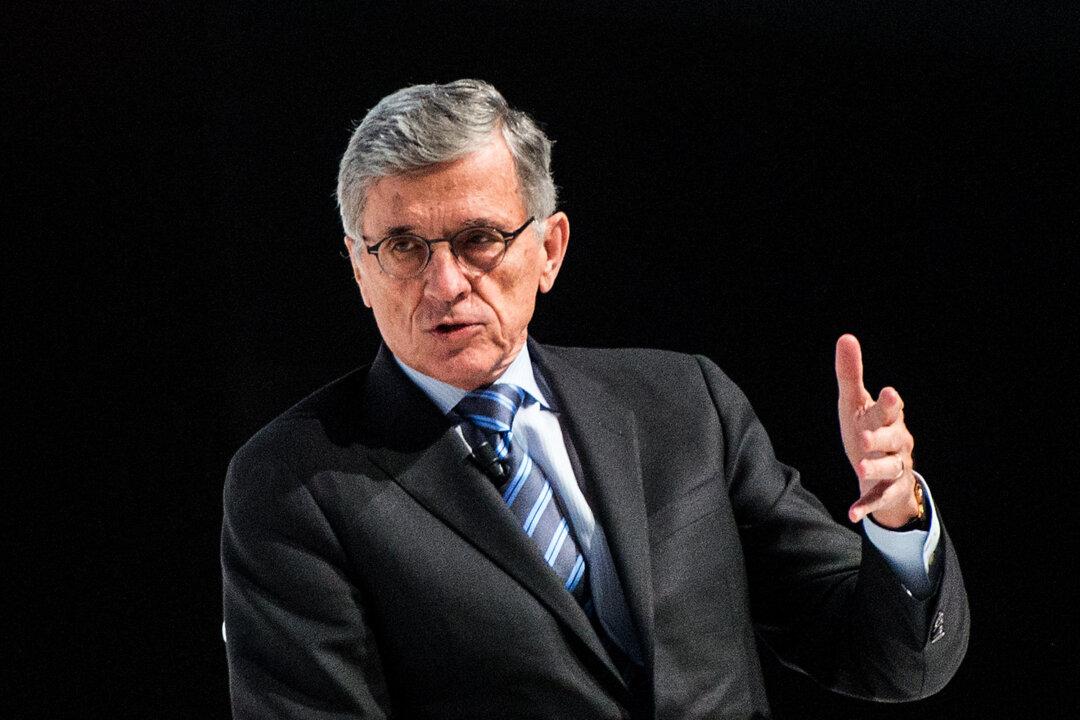Focus
net neutrality
LATEST
Major Government Policy on the Internet Passed
During the Obama administration a controversial policy was put in place to establish government control over the internet by classifying broadband as a utility.
|
Obama-Era Control Over the Internet Makes Its Return With Net Neutrality | Live With Josh
The Federal Communications Commission is bringing back a policy of deeper government regulation over the internet with so-called net neutrality.
|
FCC Commissioner Blasts Net Neutrality Revival Proposal as ‘Serious Mistake’
Brendan Carr released a scathing critique of Chairwoman Jessica Rosenworcel’s plan to revive Obama-era net neutrality rule.
|
End of Net Neutrality Puts AT&T–Time Warner Merger on Ice
AT&T’s proposed $85 billion merger with Time Warner, and the U.S. Department of Justice’s lawsuit to block the acquisition sets up an intriguing battle showcasing the government’s new antitrust strategy, which can reshape the media and telecom industry going forward.
|
FCC Chair: Courts Will Uphold New Internet Rules
More than a month after the Federal Communications Commission (FCC) created new rules for the Internet, multiple Internet service providers (ISPs) have launched challenges to the rules in court, but Tom Wheeler, the FCC chair, isn’t worried.
|
How ISPs Might Argue Against ‘Net Neutrality’ in Court
Before the Federal Communications Commission (FCC) voted to reclassify Internet service providers (ISPs) as common carriers in February, the companies had promised to challenge such a decision in court; true to their words, now they’re suing the FCC.
|
FCC Chair: We Will Not Regulate Cable Rates
Federal Communications Commission chair Tom Wheeler said on Thursday that he opposes the idea of setting the rates for Internet service providers and would work to set a precedent against rate regulation.
|
New FCC Rules Could Mean Cable Taxes, Frivolous Lawsuits for ISPs
Two weeks after the Federal Communications Commission voted to reclassify internet service providers (ISPs) as a public utility, the panel finally released the 300-plus text of the Order that it passed in a controversial 3-2 vote. The content of the order makes it clear why the FCC decided to keep it private until now; it confirms some of the worst fears of the FCC’s critics.
|
Major Government Policy on the Internet Passed
During the Obama administration a controversial policy was put in place to establish government control over the internet by classifying broadband as a utility.
|
Obama-Era Control Over the Internet Makes Its Return With Net Neutrality | Live With Josh
The Federal Communications Commission is bringing back a policy of deeper government regulation over the internet with so-called net neutrality.
|
FCC Commissioner Blasts Net Neutrality Revival Proposal as ‘Serious Mistake’
Brendan Carr released a scathing critique of Chairwoman Jessica Rosenworcel’s plan to revive Obama-era net neutrality rule.
|
End of Net Neutrality Puts AT&T–Time Warner Merger on Ice
AT&T’s proposed $85 billion merger with Time Warner, and the U.S. Department of Justice’s lawsuit to block the acquisition sets up an intriguing battle showcasing the government’s new antitrust strategy, which can reshape the media and telecom industry going forward.
|
FCC Chair: Courts Will Uphold New Internet Rules
More than a month after the Federal Communications Commission (FCC) created new rules for the Internet, multiple Internet service providers (ISPs) have launched challenges to the rules in court, but Tom Wheeler, the FCC chair, isn’t worried.
|
How ISPs Might Argue Against ‘Net Neutrality’ in Court
Before the Federal Communications Commission (FCC) voted to reclassify Internet service providers (ISPs) as common carriers in February, the companies had promised to challenge such a decision in court; true to their words, now they’re suing the FCC.
|
FCC Chair: We Will Not Regulate Cable Rates
Federal Communications Commission chair Tom Wheeler said on Thursday that he opposes the idea of setting the rates for Internet service providers and would work to set a precedent against rate regulation.
|
New FCC Rules Could Mean Cable Taxes, Frivolous Lawsuits for ISPs
Two weeks after the Federal Communications Commission voted to reclassify internet service providers (ISPs) as a public utility, the panel finally released the 300-plus text of the Order that it passed in a controversial 3-2 vote. The content of the order makes it clear why the FCC decided to keep it private until now; it confirms some of the worst fears of the FCC’s critics.
|


